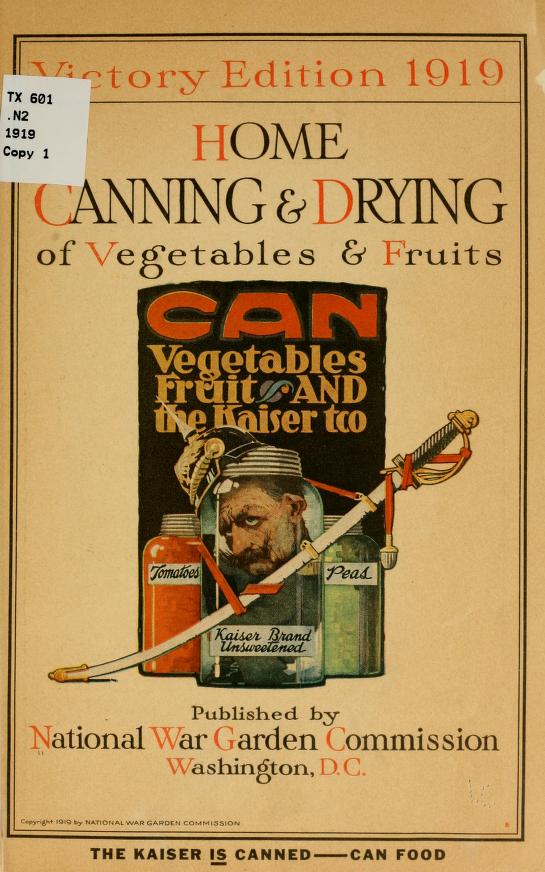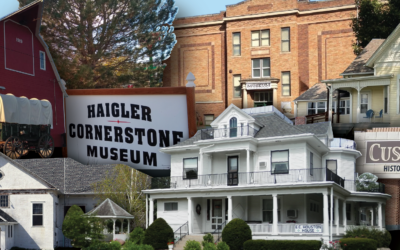During American participation in World War I the U.S. Food Administration, under the direction of Herbert Hoover, launched a massive campaign to persuade Americans to economize on food and to grow gardens in their backyards. Housewives were urged to “can Vegetables Fruit & the Kaiser too” and to “Back Up the Cannon by Use of the Canner.” When sugar became in short supply, Food Administration officials recommended new methods of home canning and food preservation, relying on the resourcefulness of the American housewife to put into practice their new slogan: “Maximum canning with minimum sugar.”
The Lincoln Daily Star on July 17, 1918, said: “Despite the severe sugar shortage and the limited supplies for canning and preserving purposes, housewives are urged to ‘put up’ enough fruits and vegetables to carry them through the winter. Two great advantages will come from such practices-food stores will be assured and transportation will be greatly relieved so that fundamental foods and other necessities can be transported.
“The sugar shortage has brought out the resourcefulness of the American housewife and today there are six different methods of preserving fruits without the use of sugar. Drying fruits of course is the most popular and the simplest. It has the double advantage of saving both sugar and cans. Bottling of fruit juices and fruit syrups are also much in favor, while fruit butters and canned fruits are growing in popularity. But perhaps the most unique of all is the pulping of fruits, by which the fruits are reduced to a pulp and bottled or canned for winter pies, sauces, and marmalades.”
The Commoner (Lincoln) on August 1, 1918, described the resourceful housewife as “bending all efforts to learn the best ways of using less sugar in her cooking and preserving and of canning without it; or with sugar substitutes. She is drying many of the fruits; she is learning to put up fruits and juices and butters and to make sirups [sic] at home from sugar beets, quinces and apples. She is substituting corn sirup for molasses, maple sirup, and honey for sugar in her canning and general cooking, and she is making sugarless candies, fruit pastes and confections.”
Americans’ obsessive love of sugar was also criticized by Food Administration officials, who urged housewives to cut down on even the small amount of sugar used to sweeten tea and coffee by enforcing the rule of “one teaspoonful to the cupful or none at all.”

Housewives were urged to “can Vegetables Fruit & the Kaiser too” in this 1919 publication by the National War Garden Commission.
(October 2011)



